Scientific Advisory Board
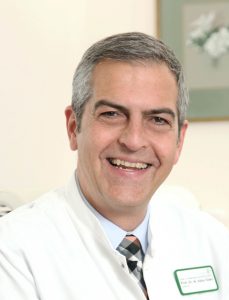
Professor Michael Abou-Dakn, MD, is head of the Gynaecology and Obstetrics Department at St. Joseph‘s Hospital Berlin Tempelhof, Germany. His specialist areas include special perinatology and obstetrics. In addition to numerous additional qualifications including that of breastfeeding expert, he is past president of the WHO/UNICEF Baby-friendly Hospital Initiative in Germany, and a member of organisations including the National Breastfeeding Committee.
He was appointed to the chair for medical science of childbirth in the study programme of midwifery at the Protestant University of Berlin and he is the official speaker for the obstetrics unit of the Consortium for Obstetrics and Perinatal Medicine (AGG) of the German Society of Gynecologists and Obstetricians (DGGG).
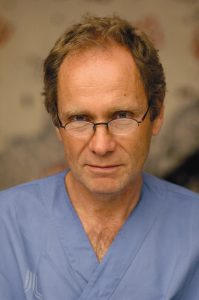
Mats Blennow is professor of perinatal neurosciences at the Karolinska Institutet and a senior consultant in neonatology at the Karolinska University Hospital, Sweden. He became a board certified in pediatrics in 1990 and in neonatal medicine in 1995. In 1995 he also defended his PhD thesis on ”Hypoxic-ischemic encephalopathy”. He was promoted to professor in 2010.
Mats Blennow is the past president of the European Society for Neonatology (ESN). ESN is the official representative for neonatology within the European Commission, and the Union of European Medical Specialities. ESN has the obligation to work for better education of neonatologists in Europé and also to accredit training facilities. One of the initiatives taken in this regard, is the NOTE project (Neonatal Online Training and Education) that ESN runs in partnership with the University of Southampton.
Mats Blennow’s current research is mainly focused on the consequences on the brain of extreme prematurity, birth asphyxia and maternal depression.
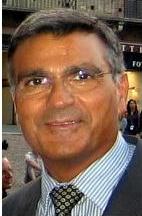
Giuseppe Buonocore, MD is professor of Paediatrics, Director of the Unit of Paediatric Neonatology and Chairman of Paediatrics and Neonatology at the School of Specialization in Paediatrics of the University of Siena.
He is author of more than 200 scientific publications in international journals with IF and Co-Editor of the well known textbook “NEONATOLOGY: A Practical Approach to Neonatal Diseases”, Springer-Verlag Publisher. The focus of his research lies in the mechanisms of neonatal brain injury, the role of free radicals in neonatal diseases and in birth asphyxia. He is also interested in ethics in perinatology and in foetal and neonatal pain prevention.
Besides being an active member of the EFCNI Scientific Advisory Board, he is President of the Italian Academy of Paediatrics, College of University Professors of Paediatric (IAP-COPED). He is former President of the European Society for Paediatric Research (ESPR), as well as of the Union of European Neonatal and Perinatal Societies (UENPS), and currently honour Member of Ibero-American Society of Neonatology (SIBEN).
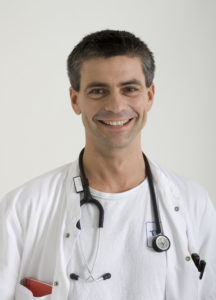
Morten Breindahl is Head of Patient Flow “Extremely preterm infants” at Karolinska University Hospitals in Danderyd, Solna and Huddinge, Stockholm, Sweden. He is also Senior Consultant and Medical Director of NeoPETS (the Neonatal and Paediatric Emergency Transport Service), and holds a PhD in paediatric infectional diseases.
In this capacity he has joined a comprehensive reformation of the health care system at Karolinska University Hospital focusing on Value Based Care and treatment including new organisational structures, leadership and cooperation principles.
He was the Congress President of the 2nd (2016) and 3rd (2017) edition of the international congress. „Transport of High Risk Neonates – When skill, equipment and professionalism make the difference” furthermore, Morten Breindahl is a member of the Scientific Advisory Board of EFCNI and the past President of the European Society for Neonatology (ESN).
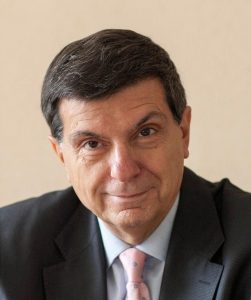
In more than 35 years, Gian Carlo Di Renzo, Professor and Chairman of the Department of Obstetrics and Gynecology at the University of Perugia, Italy, has extensively worked at national and international level with the mission to rise the standards of maternal-fetal care through teaching, setting guidelines and coordinating international and national Societies.
He had been organiser and host of several international congresses and courses. Moreover, he was President of the series of World Congresses and has been invited as speaker and/or chairman to more than 1300 international and national congresses, meetings and courses in 90 different countries. He is author of more than 1200 papers and was referred to in international journals and 75 books.
Professor Di Renzo is an awarded medical expert who is committed in doing upfront research in the most critical areas of the specialty.
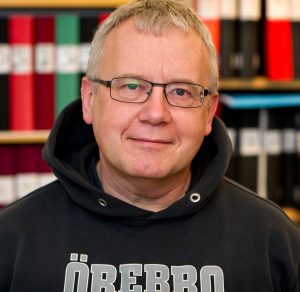
Mats Eriksson is professor in nursing science, with a special focus on pediatric nursing, at Örebro University, Sweden. He is also a specialist nurse with over 30 years’ experience of neonatal intensive care and he was the first Swedish nurse to bring the NIDCAP concept to Sweden. Mats Eriksson is scientific advisor in neonatology to the National Board of Health and welfare in Sweden.
His research mainly focuses on pain and stress in newborn infants and older children, but also on breastfeeding and support to parents. He is the leader of the international research group PEARL – Pain in Early Life.
Mats Eriksson is a member of the European Society of Paediatric and Neonatal Intensive Care and the Special Interest Group of Pain in Childhood of the International Association for the Study of Pain.
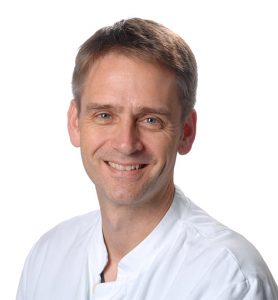
Professor Andreas Flemmer is Head of Neonatology at the Children’s Hospital and Perinatal Centre at the Ludwig Maximilian University (LMU) Munich, Germany. In 2016, he was appointed as Associate Professor of Neonatology, Department Paediatrics at the LMU Munich.
Professor Flemmer is a board certified neonatologist and paediatrician and completed a Post-Doctoral Research Fellowship from the Yale University School of Medicine in New Haven, USA. Later, he researched as a visiting academic in Australia and the USA.
For years he has been involved in several EFCNI projects such as the Human milk bank and the European Standards of Care for Newborn Health project.
In 2018, he became Chair of the collaboration between EFCNI and the International Consortium for Health Outcomes Measurement (ICHOM) for the measurement of patient-focused health outcomes.
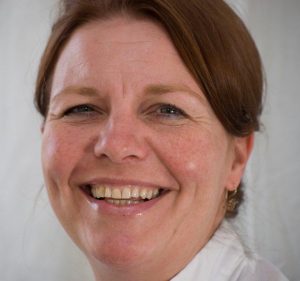
Odile Frauenfelder is a senior nurse practiioner specialised in the field of maternity and child care. In 2018, she obtained her second master´s degree in Quality and Safety in Patient care at the University of Nijmegen.
Her interests as a neonatal nurse practitioner lie primarily in the care of extreme preterm infants, not restricted to the medical and nursing care but also including the care of the parents during their stay at the NICU. In addition to her clinical work, Odile is also active in other fields for advisor. In the past, she was the Nursing President from ESPNIC (European Society for Paediatric and Neonatal Intensive Care) and President of the Dutch Association for Nurse Practitioners (V&VN VS).
She has established an extensive network amongst professionals involved in the care of the extreme preterm infants and beyond in the Dutch health care and political world. Odile is member of the registration commission for Dutch nurse practitioners and a member of the advisory board for the Dutch Dentists registration commission. Odile is knowledge ambassador of the city of Rotterdam and since 2010, a member of the Scientific Advisory Board of EFCNI.
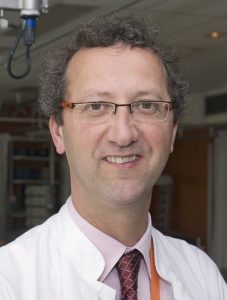
Hans van Goudoever is professor of paediatrics at the University of Amsterdam and chairman of the Department of Paediatrics of the Emma’s Children’s Hospital/AMC and VU University Medical Center in Amsterdam, The Netherlands. He received his medical education and paediatric training at the Erasmus University in Rotterdam. From 1998 until 2000 he held a post-doctorate position at the laboratory of the late Peter Reeds, Baylor College of Medicine, Children’s Nutrition Research Center, Houston, Texas. He is a board member of the International Paediatric Research Foundation and chairman of the ESPHGAN Committee on Nutrition.
He has a particular interest in neonatal nutrition, gastro-enterology, and metabolism. He published over 150 peer reviewed papers and received many grants, both national and international (including FP-7 EU funding). In 2011, he founded the Dutch Human Milk Bank.
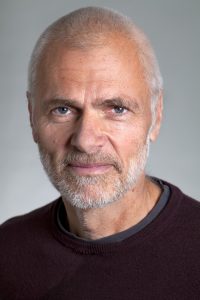
Gorm Greisen is a Clinical Professor of Pediatrics at the Institute of Clinical Medicine, Copenhagen University, Denmark and consultant neonatologist at the Department of Neonatology at The Juliane Marie Centre, Rigshospitalet.
His research focuses on causes of brain injury in preterm infants, cerebral blood flow and cerebral oxygenation, systematic follow-up studies to evaluate outcomes later in life, growth before and after birth and the consequences of growth in the perinatal period for later health, as well as interventions in the newborn period to improve health later in life, and the ethics of medical research.
He is currently engaged in an attempt to test the clinical value of monitoring cerebral oxygenation by near-infrared spectroscopy in extremely preterm infants (the SafeBoosC project) with a group of neonatologists in 17 European countries. Gorm Greisen is also a member of the Scientific Advisory Board of EFCNI.
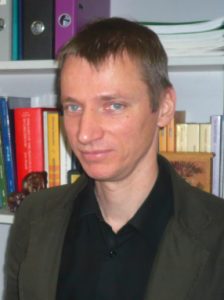
Professor Pierre Gressens received his medical degree in Brussels, Belgium, in 1989 and his Ph.D. at the University of Louvain Medical School, Brussels in 1995. He specialized further in Child Neurology and carried out his post-doctoral research training with the renowned scientist Professor Phil G. Nelson at the National Institutes of Health, Bethesda, Maryland, USA. He has been working at Robert Debré Hospital, Paris, both as researcher and child neurologist since 1995. Currently, he is the Director of the INSERM U676 – Diderot University research laboratory and Consultant for the Department of Child Neurology at Robert Debré Hospital at Paris, France. Professor Gressens’ laboratory has been involved with the basic and applied aspects of research in the area of diseases of the developing brain. He has put forward various novel concepts towards understanding the pathophysiology of neonatal brain damage and his current interests are aimed at improving the therapeutic strategies to treat these brain damages.
Professor Gressens has published more than 135 original research papers and more than 110 review papers and book chapters. More than 180 invited conferences and seminars are at his credit. In his laboratory in Paris, he has trained several young medical and non-medical scientists from various countries.
Professor Gressens has received several awards including the Jean Hamburger’s award from Paris City. He was also given research grant awards from the French National Agency for Research, from the French Ministry for Research and Technology, the European Union and from NATO. In recent years, his laboratory has engaged in a vigorous collaborative study on the therapeutic potential of embryonic stem cells with the National Brain Research Centre (Professor Vijayalakshmi Ravindranath and Dr Shyamala Mani), Manesar, Haryana.
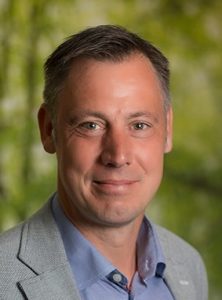
Dr Boubou Hallberg (MD, PhD) is the Head of Neonatology at the Neonatal Department of the Karolinska University Hospital in Stockholm, Sweden and affiliated to Karolinska Institute.
His research focuses on new strategies for preventing neonatal brain injury. He is PI/clinical lead for the EU-funded projects PreventROP, NEMO, NeoOpioid and BIHIVE. Additionally, he is involved in family-centered and couplet care in neonatology and also directs his attention towards staff and parental interaction and the process of designing an optimal neonatal intensive care unit to support this process for the past several years.
He is also a member at the Swedish Neonatal Society, European neonatal brain club and director of the working group for centralization and transport. Boubou Hallberg is a member of the Scientific Advisory Board of EFCNI.
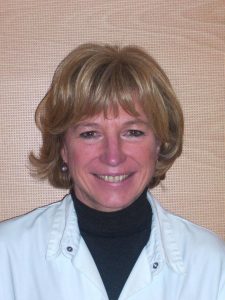
Dominique Haumont is Professor and Chairman of the Neonatal Unit at Saint-Pierre University Hospital in Brussels, Belgium since 1985. Her scientific interests are neonatal nutrition and intravenous lipid emulsions, oxidative stress and DNA damage. Besides the medical aspects of neonatology Professor Haumont focused her efforts in the transformation of traditional neonatal units towards developmentally oriented family centered care units. Pain and stress management, protection of sleep, monitoring light and noise, careful handling and positioning, skin-to-skin, breastfeeding, and most importantly restauration of the mother- infant dyad are essential elements of neonatal care and markers of respect for the baby. She pioneered this evolution by implementing a NIDCAP training center in Brussels.
As a member and president of the “College of Physicians for Neonatology” and of the “Belgian Society of Neonatology” she obtained support from the Federal Ministery of Health in Belgium. National programs and incentives to move towards family friendly hospitals are on the way. Professor Haumont is also involved in international platforms for ethical issues in neonatal intensive care, webbased quality control and benchmarking in neonatal networks and developmental care. She is a collaborator of the European Association of Perinatal Medicine (EAPM), EuroNeoNet, the European Society of Pediatric research (ESPR), European Association of Developmental Care (EADCare), the NIDCAP Federation International (NFI) and the European Chinese Perinatal Network (ECPN).
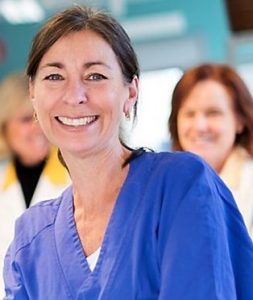
Professor Ann Hellström received her MD in 1986 and her PhD in 1997; she became a specialist in ophthalmology in 2004. Since 2004, she is a full Professor of Pediatric Ophthalmology at the Sahlgrenska Academy, University of Gothenburg.
Professor Hellström is a leading researcher within the field of Retinopathy of Prematurity (ROP) and her scientific achievements have attracted worldwide attention. For example, she pioneered the concept that low levels of the growth factor IGF-I can cause blindness in preterm infants. Furthermore, her research group has developed a web based screening tool for the prediction of retinopathy, resulting in less stressful examinations for these patients. This tool is now being used routinely in clinical practice worldwide. Professor Hellström is the recipient of several national and international prizes and awards: In 1997, she received an award from the Knut and Alice Wallenberg Foundation for promising female researcher, and in 2012, she was awarded the Athena Prize – Sweden’s most prestigious prize for clinical research.
In her clinical role, Professor Hellström is a consultant physician in pediatric ophthalmology at the Sahlgrenska University hospital. She also heads the Sahlgrenska Center for Pediatric Ophthalmology Research at the Institute of Neuroscience and Physiology at the University of Gothenburg, which is a strategic research centre focused on vascular and neural development research. Under Professor Hellström’s leadership, the centre has integrated basic research with clinical research and is today a translational centre in which clinical issues and biomedical expertise meet and create new ways of studying the mechanisms behind the neuro-vascular disease ROP, which may lead to new treatments.
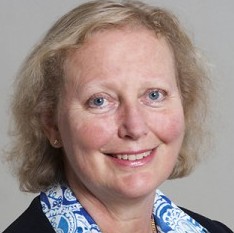
Lena Hellström-Westas, MD, PhD, is Professor of Perinatal Medicine at Uppsala University, Sweden and Senior Consultant in Neonatology at the Department of Neonatology at the Uppsala University Hospital. She is medical Co-Director at the Karolinska NIDCAP (Newborn Individualised Developmental Care and Assesment Program) center and scientific advisor in neonatology to the Swedish National Board of Health and Welfare.
Her research on amplitude-integrated EEG monitoring started with a focus on early prediction of outcome in asphyxiated infants and preterm infants. Additionally, her research interests include seizure detection, sleep and pain assessments.
She is also a member of the Swedish Neonatal Society and the European Society for Pediatric Research and a members of EFCNI’s Scientific Advisory Board.
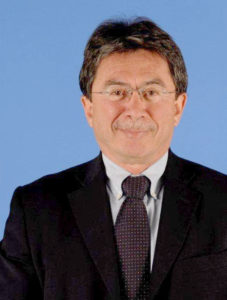
Professor Moshe Hod is Director of the Maternal Fetal Medicine Division at the Helen Schneider Women’s Hospital, Rabin Medical Center and Professor of Obstetrics and Gynecology at the Sackler Faculty of Medicine, Tel-Aviv University, Israel.
Moshe Hod is President of the European Association of Perinatal Medicine (EAPM) and Chairman of the GDM Initiative Experts Group of the International Federation of Obstetrics and Gynecology (FIGO).
Professor Moshe Hod is the editor of the Textbook of Diabetes and Pregnancy as well as the author of more than 280 scientific publications and is considered as one of the world leaders in research and management of diabetes and pregnancy.
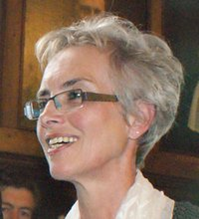
Dr Agnes van den Hoogen is a nurse scientist at the University Medical Centre of Utrecht (UMCU) – Wilhelmina Children’s Hospital in Utrecht, The Netherlands. She is a postdoc researcher, neonatal nurse at Neonatology at Wilhelmina Children’s Hospital, UMCU and lecturer at the University of Utrecht. Next to teaching at the University of Utrecht, she is also engaged in various other educational activities.
Her research interests lie in epidemiology of neonatal infection, prevention and antibiotic use. Another interest of her is education at the University of Utrecht in clinical health science and mentoring students is their master degrees of neuro science and cognition, medicine and clinical health science.
Agnes van den Hoogen is actively involved as a committee member in the Council of International Neonatal Nurses (COINN), WHO committees and is past president of the European Society for Pediatric and Neonatal Intensive Care (ESPNIC). She also is a member of the Scientific Advisory Board of EFCNI.
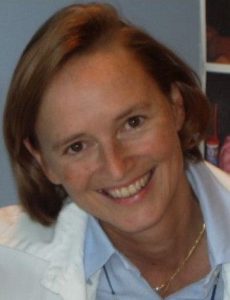
Professor Petra Hüppi, is a clinician in pediatrics. She is currently the Division Chief of the Division of Child Development in Geneva, Switzerland, and has international research activities with a visiting scientist position at Harvard Medical School in Boston, USA.
She is a member of the Swiss Academy of Medical Sciences and has directed numerous research projects both at Harvard Medical School and the University of Geneva, aimed at the better understanding of early human brain development. Her research group has successfully applied adapted quantitative, volumetric MRI techniques and new diffusion imaging techniques in hundreds of consecutively studied newborn infants to delineate anatomical and temporal characteristics of brain development in a time period of extreme relevance to brain injury in the preterm and term infant. Professor Hüppi further directs the Child Development Unit at the Children’s Hospital that takes care of children at risk for early neurodevelopmental problems including the Infant Follow-up Program for preterm infants.
Professor Hüppi, as a neonatologist, combines a profound knowledge of the physiology and pathophysiology of the newborn infant with a high expertise on the application of new neuroimaging techniques and their relationship to functional outcome in preterm children.
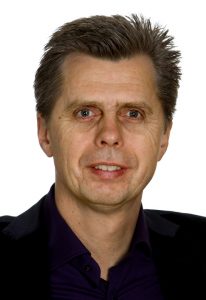
Professor Bo Jacobsson received his medical degree at Sahlgrenska Academy in Gothenburg, Sweden in 1991. He specialised in obstetrics and maternal/foetal medicine and received his Ph.D at Gothenburg University, Sweden in 2003. Subsequently he carried out his post-doctoral research training at Aarhus University in Denmark. He has been a Guest Professor at Rikshospitalet, Oslo Norway and is presently Director of the Perinatal Research Laboratory at Sahlgrenska University Hospital in Göteborg, Sweden where he also conducts his clinical obstetrical pratice. He is also associated to the Norwegian Institute of Public Health.
Professor Jacobsson’s laboratory is studying basic and applied aspects of the mechanisms of preterm delivery. Another area that has attracted his interest is genetic components of the timing of delivery and also the interplay between genes and the environment. One of his main interest currently is the possibility of preventing preterm delivery through intervention with dietary products, e.g. probiotics. The main research aim is to identify and apply different strategies to prevent preterm delivery with the purpose to deliver healthy, full-term infants
At his lab he is responsible for training researchers from different parts of Europe and Africa.

Professor Linda Johnston is Dean of the Lawrence S Bloomberg Faculty of Nursing at the University of Toronto, Honorary Professor at the University of Hong Kong and Suzhou University, China, and Adjunct Professor Vanderbilt University, USA.
Her programme of research over the last 20 years has focused primarily on the assessment, and management, of pain in babies requiring neonatal intensive care. A particular focus was, on those babies with complex surgical conditions requiring a prolonged hospitalisation and multiple procedures. More recently her work has begun to explore the longer term physical, emotional and social outcomes for surgical babies and their families who experience a neonatal intensive care stay.
She is a Fellow of the American Academy of Nursing and the European Academy of Nursing Science. She co-convened the 8th International Neonatal Nursing Conference in Belfast, auspiced by the Council of International Neonatal Nurses. Linda Johnston also contributes her expertise to the Scientific Advisory Board of EFCNI.
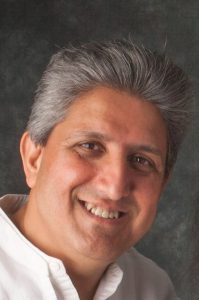
Prof. Minesh Khashu, M.B.B.S, MD, FRCPCH, FRSA, Q Fellow, is a Consultant Neonatologist and Professor of Perinatal Health, with a special interest in system-wide transformation, continuous quality improvement and patient-centred care. His research and improvement focus is necrotising enterocolitis (NEC), neonatal nutrition and fathers’ experiences.
After pursuing his medical career in India, Canada and England, he became Chief for the Neonatal Service, Poole Hospital (now University Hospitals Dorset) within the British NHS, and led the service through a successful QI journey over ten years. Up until March 2021, Prof. Minesh Khashu served as a Clinical Director for the Maternity & Neonatal Strategic Clinical Network at NHS England Wessex and Hampshire & Thames Valley. He is currently a non-executive director for a large ambulance and emergency care organisation in the U.K. and also serves on various neonatal and maternity professional groups and committees. He served on the national clinical reference group for neonatal care as a senate member for six years between 2013-19.
His leadership and urge for continuous improvement have facilitated the development of DadPad Neonatal, the conception of SIGNEC (Special interest group NEC), and various other regional and national improvement projects.
Prof. Khashu is well known for his vision and compassion and his ability to inspire individuals and teams. He is a resilient and determined problem solver and an effective and supportive team leader – committed to developing and empowering talent. He is a well-regarded mentor and clinical teacher.
He believes “collaboration is the most critical innovation required in healthcare today” and is therefore looking forward to supporting the Scientific Advisory Board of EFCNI and GLANCE.
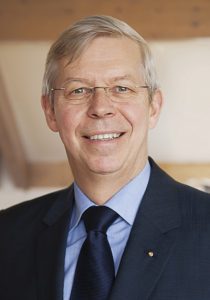
Berthold Koletzko is Professor of Paediatrics at LMU – Luwig-Maximilians-Universität Munich and Head, Division Metabolic and Nutritional Medicine at Dr von Hauner Children’s Hospital, LMU University of Munich, Germany.
He has coordinated several international research consortia funded by the EU Framework Programmes and served as scientific advisor of the European Parliament Committee on Consumer Protection, the Innovation Initiative of the Chancellor of the Federal Republic of Germany and the World Health Association. He previously was member and rapporteur of the European Commission Scientific Committee on Food.
Professor Koletzko is author of more than 950 scientific journal publications. He serves as President of the Federation of International Societies of Paediatric Gastroenterology, Hepatology & Nutrition (FISPGHAN) and Managing Director of the Early Nutrition Academy. He also is a member of the Scientific Advisory Board of EFCNI.
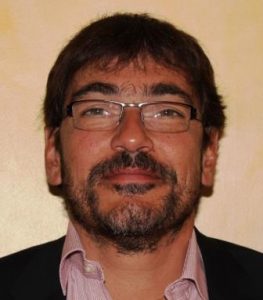
Pierre Kuhn, MD, PhD, is a professor of paediatrics at the University Hospital of Strasbourg, France, and was an invited researcher at the Karolinska Institute in Stockholm, Sweden. He works as senior neonatologist and has the position of head of the NICU at the University Hospital Strasbourg.
Pr Kuhn is also a researcher in neuroscience at the Centre National de la Recherche Scientifique. He is involved in research evaluating mainly the impact of the hospital environment on the sensory systems and the brain development of infants born very preterm, His research focuses also on the evaluation of infant and family centred developmental care strategies.
Pierre Kuhn has published in national and international journals and books. He is a board member of the Société Française de Néonatologie and is coordinating the Group of Reflection and Evaluation of the Environment of Newborn infant (GREEN) in France. In addition, he is also the president of the perinatal network in the Alsace region. Pierre Kuhn is a member of the Scientific Advisory Board of EFCNI.
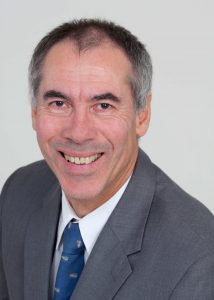
Dr Nicholas Lack is a statistical consultant, currently employed as section head of statistical methods, perinatology, neonatology, gynaecology and breast cancer surgery at the Bavarian Institute for Hospital based Quality Assurance (BAQ) in Munich, Germany. He has gained over 35 years of international experience in maternal and child health in government health administration assignments in the UK and Germany.
His specialty lies in benchmarking of hospitals with respect to quality of care. For over 15 years he has been involved in international collaborations such as cross-country comparisons of perinatal health (EURO-PERISTAT working group of European indicators of perinatal health) and causal analysis of rare obstetric events and their prevention (International Obstetrics Surveillance System – INOSS). Since 2014 he is a statistical consultant for the Rotarian RFPD Maternal Child Health (MCH) Project in Nigeria.
Besides different lecturing jobs in the field of statistics and health education, Dr Lack has published on the topics of funnel plots for quality comparisons, the epidemiology of perinatal mortality as well as on methodological difficulties of cross-country comparisons of indicators of maternal child health care. He also is a member of the Scientific Advisory Board of EFCNI.
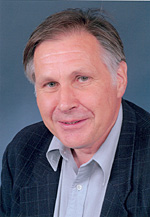
Professor Hugo Lagercrantz was appointed professor in 1989. As paediatrician, he specialised in neonatology and is working in the Department of Woman and Child Health, combined with a service consultancy at Astrid Lindgren Children’s Hospital.
Professor Lagercrantz’ research deals with life’s first stage – the body’s stress responses at birth and the medical problems that arise when life starts early. Particular attention has been devoted to respiratory control of newborns and the phenomenon of sudden infant death syndrome.
In recent years, Professor Lagercrantz has studied the newborn brain, especially the preterm brain. By studying how the child processes sensory input, such as odors, pain or the sight of faces, he tries to understand how consciousness arises, and what happens when the brain develops abnormally.
Professor Lagercrantz published about 260 scientific articles and several popular science books. He is also an active author of opinion articles on research and care, often from a child perspective. From 2002 to 2003, he was Chairman of the Swedish children Medical Association. In 2004 he was appointed President of the European Society for Pediatric Research. In February 2005, Professor Lagercrantz was guest lecturer at the College de France in Paris. He was rewarded in 2004 with Astrid Lindgren’s world award for his efforts for children.
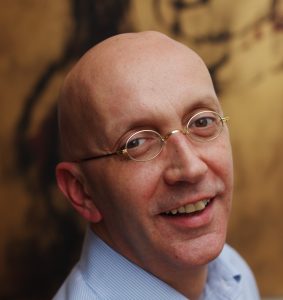
Jos M. Latour is Professor in Clinical Nursing at Plymouth University in Plymouth, UK and at Hunan Children’s Hospital, Changsha, China. His clinical post is at University Hospital Plymouth and Musgrove Park Hospital in Taunton, UK, where he is leading the Clinical Schools aiming to drive clinical research forward.
The research lines of Jos Latour are related to family-centred care, empowerment and involvement of parents in healthcare, end-of-life care, and paediatric sepsis. His major research programme is called the EMPATHIC study (EMpowerment of PArents in THe Intensive Care) and is currently implemented in NICUs and PICUs in > 40 countries around the world. Jos is actively promoting evidence-based and evidence-informed care. His vision is to narrow the gap between research and clinical practice.
Jos has published widely in peer-reviewed journals, books and chapters. He is associate-editor of Pediatric Critical Care Medicine and editorial board member of several other international peer-reviewed journals and contributes to the Scientific Advisory Board of EFCNI.
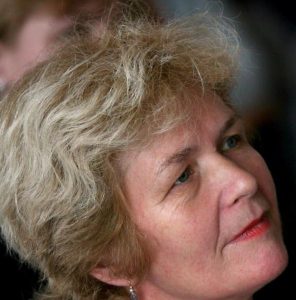
Aleid Leemhuis MD, PhD, Associate Professor, is pediatrician and the head of the follow-up programme of NICU graduates at the Emma Children’s Hospital, Amsterdam University Medical Center. She is consultant to the Expertise Center for post discharge developmental support (EOP-Nl, Expertise centrum Ontwikkelingsondersteuning voor Prematuren).
Within national and international collaborations, she is in involved in research in multi-disciplinary groups mostly aiming at improving long term health and neurodevelopmental outcomes of preterm infants and infants born after fetal growth restriction. This concerns primary, secondary and tertiary prevention of neurodevelopmental disabilities, mostly within in the age group 0 to 13
Aleid Leemhuis participated in the core writing group of the Dutch guideline on aftercare for preterm and small for date neonates which was a joined effort of the preventive primary healthcare, the Dutch society of paediatrics and the Dutch association of parents of preterm infants. She also is a member of EFCNI’s Scientific Advisory Board.

Dr Atle Moen is a consultant neonatologist at Oslo University Hospital, Rikshospitalet. He worked for more than 10 years at the Drammen Hospital, part of Vestre Viken Hospital Trust as consultant in paediatrics and neonatology, Clinical Director Neonatology and Medical Director of the Department of Paediatrics. In Drammen Hospital, he planned and implemented a new single room level II NICU in 2012.
His scientific focus is neonatology, healthcare management, paediatrics, and patient safety.
Atle Moen is a member of the Scientific Advisory Board of EFCNI.
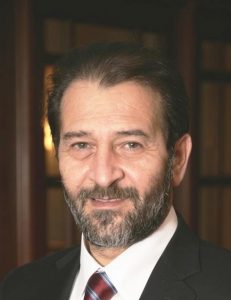
Professor of Fetal Medicine, King’s College, London,
Professor of Fetal Medicine, University College, London
Professor Kypros Nicolaides, a world renowned fetal medicine expert, was born in Cyprus, completed his medical studies at King’s College Hospital, London University in 1978. At present he is Professor of fetal medicine at King’s College and University College, London.
Professor Nicolaides has received several distinguished awards, including the Ian Donald Gold Award for Highest Contribution in Ultrasound of the International Society Ultrasound in Obstetrics & Gynecology, the Eric Saling Award for Highest Scientific Contribution in Perinatal Medicine of the World Association of Perinatal Medicine and Excellence in Letters, Culture and Science of the Government of Cyprus. He is an honorary Fellow of the American Institute of Ultrasound in Medicine, Member of the International Academy of Perinatal Medicine and Honorary Doctor in Medicine at the Universities of Amsterdam (Netherlands), Athens and Ioannina (Greece), Bucharest (Romania), Jinan (China), Olomouc (Czech Republic) and Warsaw (Poland). Professor Nicolaides is member of the EFCNI Scientific Advisory Board.
Professor Nicolaides has published an amazing number of 1,161 peer review papers in scientific journals on aspects of fetal diagnosis and therapy and has edited and written several books. He introduced internet based courses for health care professionals and patients in 20 languages. Professor Nicolaides provided training in fetal medicine to more than 500 doctors from 50 countries. He is Founder and Chairman of the Fetal Medicine Foundation, aiming to promote research and training in fetal medicine throughout the world.
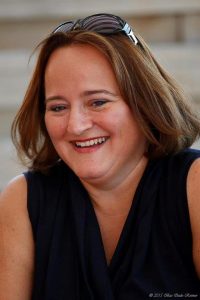
Monique Oude Reimer is a NIDCAP trainer at the Erasmus MC-Sophia Children’s Hospital, Rotterdam and Co-director of the Sophia NIDCAP Training Centre, Rotterdam, the Netherlands. Currently, she works as a Clinical development consultant at the NICU, where she supports the units in all their efforts to implement individualized care for the patients and their Family.
Together with her colleague Inga Warren, Senior NIDCAP Trainer in London, UK, she developed the Family and Infant Neurodevelopment Education course (FINE). Her interests lie in nursing, nursing education and assessment, primary care and family nursing as well as clinical teaching.
Monique has presented multiple lectures in English, German and Dutch at different conferences over the past few years and is a member of the Scientific Advisory Board of EFCNI.
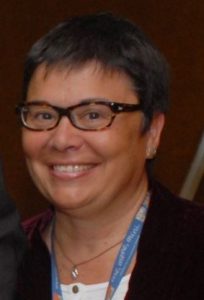
Dr Carmen Pallás-Alonso (PhD, MD) is the Head of the Neonatal Unit at the Hospital Universitario 12 de Octubre in Madrid, Spain. She is Associate Professor of Paediatrics at the Medical School of the Complutense University in Madrid and a member of the Spanish group Preventive Activities for Children and Adolescents (PrevInfad). Additionally, she holds the position of National President of the Spanish Baby Friendly Hospital Initiative (BFHI).
The Neonatal Unit of the Hospital 12 de Octubre has pioneered the implementation of a developmental and supportive care concept in Spain. Further, it is one of two Spanish NIDCAP training centres. The first Spanish human milk bank was established by Dr Carmen Pallás-Alonso and her team. Additionally, the unit has been accredited by UNICEF as BFHI hospital. The neonatal team performs research on human milk handling in the neonatal unit and human milk banks. Other research areas include kangaroo care, developmental supportive care and patient and family-centred care.
Dr Carmen Pallás-Alonso has been distinguished with the Queen Sofia Research Award for the follow-up programme for preterm infants weighing less than 1,500g in the year 2000 and the National Quality Award in 2006 by the Spanish Ministry of Health. She is author of more than 100 papers and numerous book chapters.
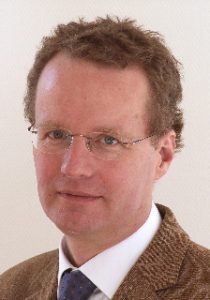
Professor Christian F. Poets did his medical training at Hanover Medical School, Germany, and the National Heart&Lung institute, London, UK. He then worked as a consultant paediatrician at Hanover Medical School, before he was appointed Professor and Medical Director, Department of Neonatology, University of Tübingen, Germany, in 2002. In 2007, he declined an offer to become head of the Department of Neonatology at the Charité in Berlin, Germany to continue his work in Tübingen, Germany.
Professor Poets’ main research interests include the advancement of neonatology via application of Evidence Based Medicine (including the performance of randomized controlled trials), control of breathing and its disorders, particularly apnoea of prematurity and sudden infant death syndrome, surfactant research, and neonatal immunology. He has also done scientific studies into the factors influencing neonatal outcome, from which he has learned that preterm infants are doing better if they are being treated in larger perinatal centres after birth than in smaller hospitals.
He was Chairman of the German Society for Neonatology and Paediatric Intensive Care from 2004 to 2009.
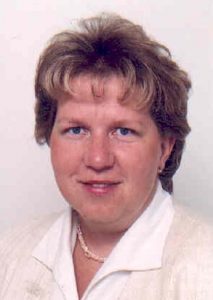
Professor Heike Rabe is currently a Consultant Neonatologist at the Brighton and Sussex University Hospitals in Brighton, United Kingdom and has been appointed as Honorary Senior Clinical Lecturer for Brighton and Sussex Medical School. After graduating from medical school at the Westphalian Wilhelms University of Münster, Germany, she started her training in Paediatrics in England. She returned to the Children’s Hospital of the University of Münster and became a Research Fellow supported by a DFG grant and performed research on cerebral Doppler ultrasound. After completion of her training in General Paediatrics and Neonatology, Professor Rabe became a Consultant Paediatrician at the Children’s University Hospital of Münster. Finally, she was granted Habilitation in Paediatrics and became an Assistant Professor of the Medical School of the University Hospital of Münster.
Professor Rabe’s research interests are neonatal brain, haematology, oxygen transport and microcirculation and she is actively performing studies within these areas. She is a member of several national and international scientific societies. She is a Fellow of the Royal College of Paediatrics and Child Health (UK). As a member of the European Society for Paediatric Research/European Society for Neonatology (ESPR/ESN), she served as a section secretary from 1998 to 2004 and a member of the Council from 2001 to 2004. The Council of the ESPR/ESN has seconded her in 2004 to act as the representative on behalf of the Society on the EU directive on Paediatric Drug Regulation. In 2007 she was elected Vice President of the ESPR.
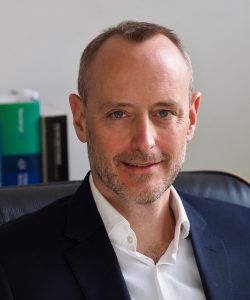
Since 2017 Charles Christoph Roehr is Associate Professor at the University of Oxford and he holds a university position as Privatdozent (Assistant Professor of Paediatrics) at the Charité Berlin, Germany since 2012.
Professor Roehr has a keen interest in studying neonatal transition at birth and to improve the various methods of non-invasive respiratory support/ ventilation (NIV) applied to neonates. Another interest of his is medical education and postgraduate training. For many years, he has conducted national and international seminars on different neonatal topics.
In his role as President of the European Society for Paediatric Research (ESPR), deputy chair of the European Scientific Collaboration of Neonatal Resuscitation Research and Chair of Paediatric and Neonatal Intensive Care Section of the European Respiratory Society (ERS), Charles is keen to promote neonatal education, resuscitation research and respiratory health throughout Europe and beyond. He supports EFCNI’s Scientific Advisory Board with his expertise.
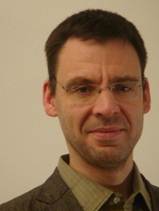
Professor Mario Rüdiger is Head of the Department for Neonatology and Paediatric Intensive Care Medicine at the Children’s Clinic of the University Hospital Carl Gustav Carus in Dresden, Germany.
Professor Rüdiger was trained as a paediatrician and neonatologist at the University Hospital Charité, Berlin. During that time he also started his scientific career mainly on the field of lung injury in preterm newborns.
After 10 years in Berlin he moved to Austria, where he worked as a consultant at the Clinic for Neonatology at the University Hospital in Innsbruck between 2004 and 2008. Besides his clinical work he was the Head of the Pulmonary Research Group.
In 2008, Professor Rüdiger became Professor for Paediatrics and Head of Department at the University Hospital Dresden. His clinical and scientific expertise covers mainly the following three topics: prevention of chronic lung disease in preterm infants, delivery room management and neonatal neuropsychological development. Accordingly, his laboratory studies are dedicated to the pulmonary surfactant system, perfluorocarbon administration and lung development. The clinical research questions are focused on improvement of delivery room management. As the principal investigator he was responsible for the multicenter, international Trial to Evaluate a Specified Type of APGAR (TEST-APGAR). To improve the neuropsychological development of preterm infants he developed the “FamilieNetz” – pilotproject to support families of preterm infants.
His scientific work was honored by different awards, such as the EFCNI CaPaNi-Award for neonatal lung research, the Bengt-Robertson-Award and the German Broadcasting Charity-Award “Goldene Henne”.
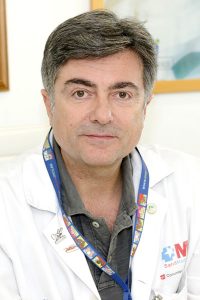
Professor Manuel Sanchez Luna is an Accredited Associate Professor in Pediatrics at the Complutense University of Madrid, Spain, and the Medical Director of the Neonatology Division and the Neonatal Intensive Care Unit at the Hospital General Universitario Gregorio Marañón. He holds a PhD, and an MD degree in Pediatrics and an MBA in Medical Governance and Hospital Administration. Professor Manuel Sanchez Luna is specialized in neonatology. His research interests include Bronchopulmonary Dysplasia, Respiratory physiology, Sepsis, shock, and personalized nutrition. He has widely contributed to national and international conferences and published more than 140 articles and book chapters.
Professor Sanchez Luna is the President of the Union of European Neonatal and Perinatal Societies (UENPS), the Elected President of the International Neonatology Association (INA), a Regular Fellow of the International Academy of Perinatal Medicine, and a member of ESPR, ESICM, ESPNIC and ESN.
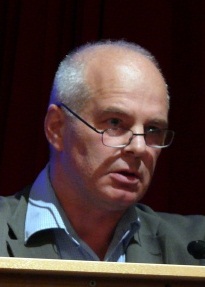
Professor Ola Didrik Saugstad is a leading Norwegian pediatrician. He is a Professor of Pediatrics at the University of Oslo, Consultant in new-born medicine and Director of the Department of Pediatric Research at the National Hospital.
Professor Saugstad finished medical school in Oslo in 1973 and earned a doctoral research degree (dr. med.) in 1977. He became a Consultant in 1986 and a Professor in 1991.
Professor Saugstad has published more than 250 articles and book chapters in journals and books and is one of the most prominent Norwegian medical researchers. He was a board member of the European Society of Pediatric Research from 1987 to 1990, of the International Pediatric Foundation from 2001 to 2004 and President of the European Association of Perinatal Medicine from 2002 to 2004. He is an editor or member of the editorial board of several medical journals, and has served as a referee for more than 30 journals. He has also received several awards, and is honorary member of several medical societies. He has supervised 20 dr. med./PhD degrees.
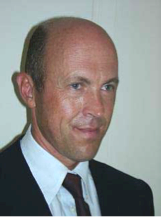
Umberto Simeoni is Professor of Paediatrics at Faculté de Biologie et de Médecine, University of Lausanne and Director of the Division of Pediatrics and of the Developmental Origins of Health and Disease (DOHaD) Research Unit at CHUV University Hospital in Lausanne Switzerland.
His research is oriented towards the Developmental Origins of Health and Disease (DOHaD), with a special focus on the developmental programming of the cardio-vascular system in conditions of perinatal disease, such as intrauterine growth-restriction, preterm birth or exposure to maternal overweight/obesity and gestational diabetes. He also is highly interested in perinatal bioethics.
He authored and co-authored more than 200 referenced articles, several books on neonatology, and more than 300 invited lectures. Umberto Simeoni is Past-President of the European Association of Perinatal Medicine and of the Société Francophone DOHaD. He also is a member of the Scientific Advisory Board of EFCNI.
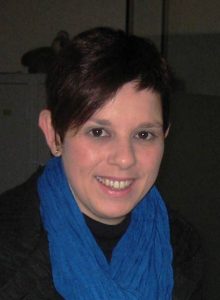
Dr Inge Tency graduated as a midwife in 1999. Subsequently, she started a master in Medical Social Science, option health education and promotion at Ghent University (2002), Belgium, and obtained a teaching certificate in 2003. She combined her studies with a job as midwife and became a scientific collaborator of the skills lab at the faculty of medicine of Ghent University. In 2005 she leaved clinical practice and worked on diverse scientific projects at the Women’s Clinic of Ghent University Hospital. In June 2013 she defended her PhD on “Inflammatory response in maternal serum during preterm labour”. Since December 2012 she works as a lecturer in midwifery education (KaHo Sint Lieven, Sint-Niklaas, Belgium) where she also coordinates the international Midwifery program.
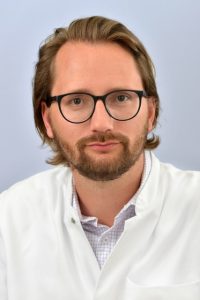
Professor Stefan Verlohren, MD, PhD is a Consultant in Obstetrics and Gynecology and Senior lecturer at the Department of Obstetrics, Charité University Medicine, Berlin, Germany. He is specialised in Maternal-Foetal Medicine and DEGUM II certified with a clinical interest in prenatal diagnosis and foetal therapy. After studying medicine in Marburg, Lausanne and Berlin, he went on to do specialist training with research fellowships in Berlin and London.
His main research interest is pre-eclampsia, he is head of the Pre-eclampsia Research Group at the Charité and Vice-Chairman of the DGGG Hypertension of Pregnancy/Pre-Eclampsia Association.
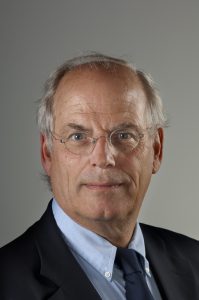
Gerard H.A.Visser, emeritus professor Obstetrics, University Medical Center, Utrecht, the Netherlands, president European Association of Perinatal medicine, former president Dutch society Obstetrics and Gynaecology, honorary fellow Flemish, South African and Royal Colleges of Obstetrics and Gynaecology, Member medical high court, The Netherlands. Research interests: fetal (neurological) development, IUGR, fetal asphyxia, diabetes and pregnancy, About 400 PubMed international articles, supervisor more than 60 completed PhD projects.
Gerard Visser trained in Groningen the Netherlands where he worked with Henk Huisjes and Heinz Prechtl. He spend a one year’s Royal Society fellowship in Oxford with Geoffrey Dawes. Later on he was a visiting professor at King’s College Hospital in London (Stuart Campbell/Kypros Nicolaides). In 1978 he defended his PhD on induction of labour. In 1986 he became professor of Obstetrics and 3 years later he became chairman of the department of Obstetrics and Gynaecology. In 1991 he moved to Utrecht where he obtained the same position. For three years he was the vice dean responsible for innovation of the medical training programmes and a member of the board of the University Medical Center. The beginning and end of academic life were identical: obstetrics, patient care and research.
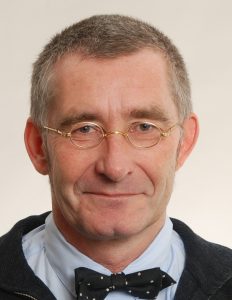
Dr Axel von der Wense received his medical academic education at the Universities of Wuerzburg and Berlin, Germany, and Cape Town, South Africa. He specialized in paediatrics and neonatology at the University of Wuerzburg, Free University of Berlin and the Childrens Department of Klinikum Kassel, Germany.
In 2000 he was appointed Head of the Department of Neonatology and Paediatric Intensive Care at the Altona Childrens Hospital in Hamburg, Germany.
Dr von der Wense chaired the annual meeting of the German Society for Neonatology and Paediatric Intensive Care in 2007. He is a member of the European Society for Paediatric Research (ESPR) and was a co-organizer of the 50th annual meeting of ESPR in Hamburg 2009.
His scientific interests include neonatal haemodynamics and methods of minimal invasive techniques such as application of surfactant without intubation. Together with the Department of Psychosomatic Medicine and Psychiatrics he is principal investigator of the „Hamburg preterm and term infants and parents”-study. The aim of this trial is to identify the influence of parental stress, traumatic experience and parental psychiatric problems on mental and developmental outcome of preterm infants.
On the long run, one of his goals is the routine implementation of psychological care for parents during NICU-treatment in high level perinatal care centers.
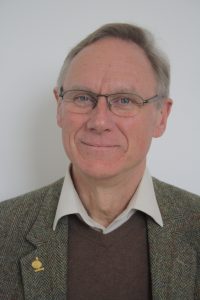
Dr Björn Westrup is a senior consultant in neonatology and in 1999 founder of the Karolinska NIDCAP Training & Research Center at Astrid Lindgren Children’s Hospital, Karolinska University Hospital and Karolinska Institute.
Dr Westrup is since the beginning of 1990s one of the pioneers in scientific evaluation and dissemination of Infant- & Family-Centered Developmental Care – IFCDC. His focus has been clinical randomized controlled trials of the newborn on effects of parental involvement in the care; effects of family centred supportive hospital systems and architectural design of nurseries. Dr Westrup is one of the principle investigators in the WHO iKMC Study – a large multicentre trial in low-income countries on very low birth weight infants with immediate skin-to-skin contact and couplet care – a care model that minimises the separation of infant from its mother by providing medical care also for the mother in the neonatal unit. He has a long and close collaboration with parental organisations and serves in the Scientific Advisory Board of EFCNI.
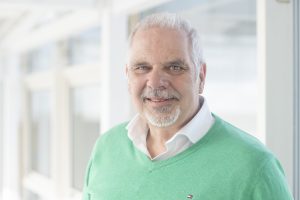
Dieter Wolke (PhD Dr rer nat h.c.) is Professor of Developmental Psychology and Individual Differences at the Department of Psychology at the University of Warwick. He leads the Lifespan Health and Wellbeing Group.
His research focuses on developmental pathways leading to developmental psychopathology. He studies biological at risk children (very preterm children), school and sibling bullying, infant regulatory problems (crying, feeding, sleeping) and parenting. His particular interest is of how preterm birth affects brain development and psychological development and quality of life. He is involved in a range of follow-up studies of preterm children in the UK and Germany including the EPICure Study, the Bavarian Longitudinal Study and in the Scientific lead of RECAP-preterm, a EU Horizon 2020 project with 20 partners.
Professor Wolke has published over 350 research papers (#HighlyCited2019 @Clarivate @WebofScience), and is on the editorial boards of a number of journals and several scientific boards, e.g. of EFCNI’s Scientific Advisory Board. He has been named the 2020 British Psychological Society’s winner of the award for Distinguished Contributions to British Developmental Psychology.

